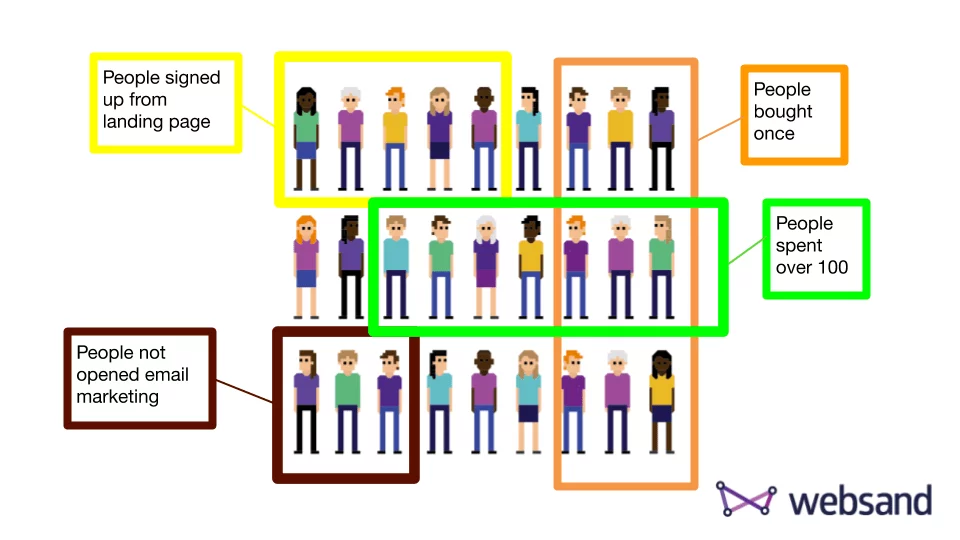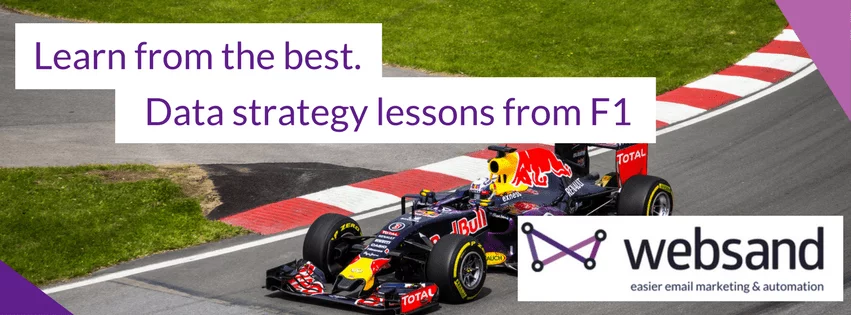Some of the most talented engineers and strategic minds on the planet work in Formula 1.
Races are often won and lost based on nano-seconds or tactical split decisions.
Even when it looks easy, a huge amount of planning will have taken place. A lot to be learned from that about how you manage your own data…
Data Strategy Lessons from Sport – Formula One
Sport is a very competitive environment and can be a great source of knowledge to help improve your business, F1 provides some great data strategy lessons.
F1 teams make quick data driven decisions. They collect huge amounts of data and use this to make key decisions during races. However, without a solid data strategy, these decisions are difficult as the data isn’t in context.
Formula one teams collect data they can control – tyre management, car set up, car performance, driver strategy, and team strategy.
Each team also collects a lot of data they cannot directly control but will control the outcome of the race – other drivers, safety cars, weather, stewarding decisions and accidents.
It’s this ‘complex’ data that often drives the changes in strategy. With teams adapting their plans as weather changes or other teams crash out. This agile thinking and the ability to react to rapidly to these circumstances is critical to get to the winning post.
Same is true in business, and all of this data needs to be considered when you are developing your data strategy.
Something we are only too aware of after the last year of disruption due to the COVID situation gripping the world.
Understanding all the elements you control
So what data strategy lessons can we learn from the masters of managing data within F1?
Understanding all elements in F1 is key to give the driver that vital edge needed against the competition. The data needs to be analysed effectively by the teams to give their driver the correct strategy that would give them that extra millisecond needed to win.
Success is as much due to the strategic competition off the track as the driver performance on the track. An unexpected downpour. A accident causing a safety car. Fast drying tarmac. Are all events that require that strategies need to be customised and rethought very quickly.
(See this old, but great example from the German Grand Prix 2014 read the report here)
Data strategy that supports data driven decisions such as:
- When to pit.
- What tyres to us.
- How to react to safety cars.
The engineers need to analyse and understand the data in real time. The data strategy each team applies will ensure that they have the data that they need to make quick decisions whilst under pressure.
Of course they don’t always get the calculations right.
A quick history of strategic errors in Formula One.
And apologies for delving into Formula One fanboy mode to make my point, but I update this blog annually with key strategy successes and mistakes. If I miss one, point it out in the comments please.
In the case of the first Grand Prix of 2017 in Australia, a pitstop decision from the analysts moved Lewis Hamilton from first to second, and he never recovered.
This is not a rigid process, it is an agile one. A constant learning cycle to drive things faster or make them more effective.
> And remember to learn from your mistakes. In the Australian Grand Prix in 2018, a strategic error under a virtual safety car (and a pitstop) moved poor Lewis from first to second.
Refining your data strategy based on measurement
F1 is a sport where strategy and science is everything.
The data strategy of each team is designed to give the team strategists the data they need to make key decisions quickly. To make sure, the thinking of the clever strategists off the track, are as agile as the car is on the track.
Understanding the data and acting upon it can give you a competitive edge. Your car needs to be faster than the others and your strategy needs to be more agile that than your competition.
The same is true within your business, managing your customer information effectively helps you to make key decisions to help your business to grow.
Evolve with the times
Every year F1 teams need to evolve.
They usually have new rules and regulations related to each season.
New tires, reduced number of engines, fuel levels, or new safety measures such as the ‘driver halo’.
As a result, success is never guaranteed, everyone starts from the same point every year.
The same is true in business, but it’s often not as clear cut.
Your strategy isn’t and shouldn’t be fixed.
You need to adapt and evolve.
Occasionally you’ll have a unique set of challenges to overcome that will mean you need to change direction.
I’ll avoid a COVID angle and instead focus on a more regulatory example, such as GDPR.
That’s a new set of rules and regulations that are going to change the way that data is collected and managed between people and business.
Some businesses (like Websand) are act like a good solid professional F1 team and embracing the challenge and opportunities brings. That’s why we built in GDPR functionality into our platform.
You’ve recently had to deal with change too.
COVID has hit every business globally, some for the better, for others it’s been unrecoverable. But we’ve all got the new normal to deal with so what opportunities can you create, and what will be the new foundation for your data strategy.
Create a data strategy around your customer set-ups
Just as a racing car has a specific set up to match a driver. You can do the same with your marketing.
Not everyone is the same, they come from different places, perhaps haven’t bought yet, or have bought different things. The best bit is, you’ve got the data that allows you to identify those people based around these traits.
You’ve got all the raw materials, but perhaps you just haven’t connected them with a data strategy, or attached them to the right engine.
A marketing automation platform such as Websand will help you to do just that.
To tailor their your marketing activity to specific groups of customers within your business, through customer segmentation.

To understand more about the data you collect, with dashboards driven by customer behaviour.

Providing a process to link your customer data with your marketing activity so you can easily test, measure and refine your marketing and data strategy.
Giving your business the agility to grow based around the customer lifetime value and day-to-day behaviour of your customers.
Overall, giving you the pitlane to create and implement a data driven marketing strategy for your business. With GDPR approaching in the rear view mirror it’s more important than ever.
Find out how Websand can help you to increase your marketing performance sign up for a free trial and get started!
It’s time to start getting more from your email marketing
Sign up for a free Websand demo and let’s show you how to get the best from your email marketing.
